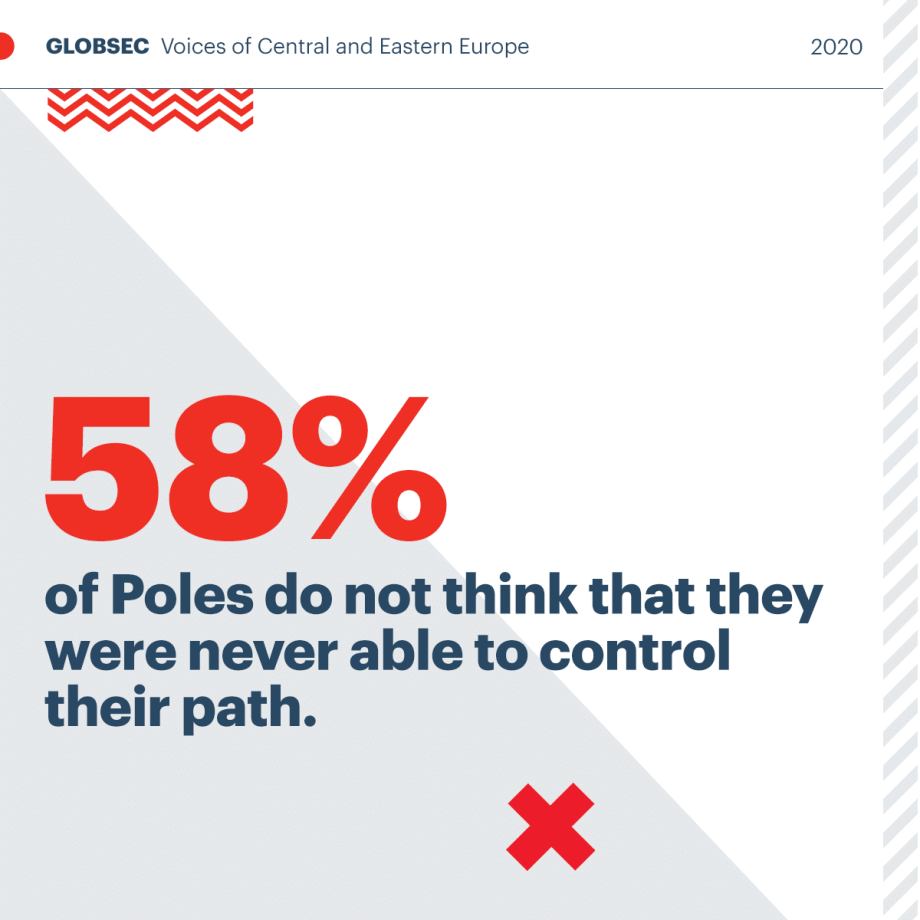Perceptions of democracy and conspiracy theories in Poland

Over the past few years, the European Union has coped with far-reaching political, economic and social changes and a string of successive and sometimes overlapping crises. The financial and economic crisis, refugee and migration flows and the Covid-19 pandemic all underscore both the extent to which our world is interconnected and the vulnerabilities of modern societies. Globalization, digitalization and an all-encompassing information age are indeed providing an unending challenge to all.
GLOBSEC’s report, Voices of Central and Eastern Europe: Perceptions of democracy & governance in 10 EU countries, provides unique insight into public satisfaction with the functioning of democracy and governance in ten Central and Eastern European countries: Austria, Bulgaria, Czechia, Estonia, Hungary, Latvia, Lithuania, Poland, Romania and Slovakia.
This study focuses specifically on Poland. As the Polish partner within the project, the Political Accountability Foundation (Fundacja Odpowiedzialna Polityka) has assisted in compiling of the findings on Polish public stances.
The key findings of this study are:
- 66% of Poles prefer liberal democracy with regular elections and a multiparty system over strong decisive leader who does not bother with elections.
- 45% are willing to trade away some of their rights and freedoms in exchange for more security in particular.
- Migration is seen as the biggest threat to the Polish identity and values.
- A strong influence of government and church over the media is perceived by 62% and 42% respectively.
Read more in the fact-sheet below (in English only).
For more information about Poland, please visit Political Accountability Foundation’s website.